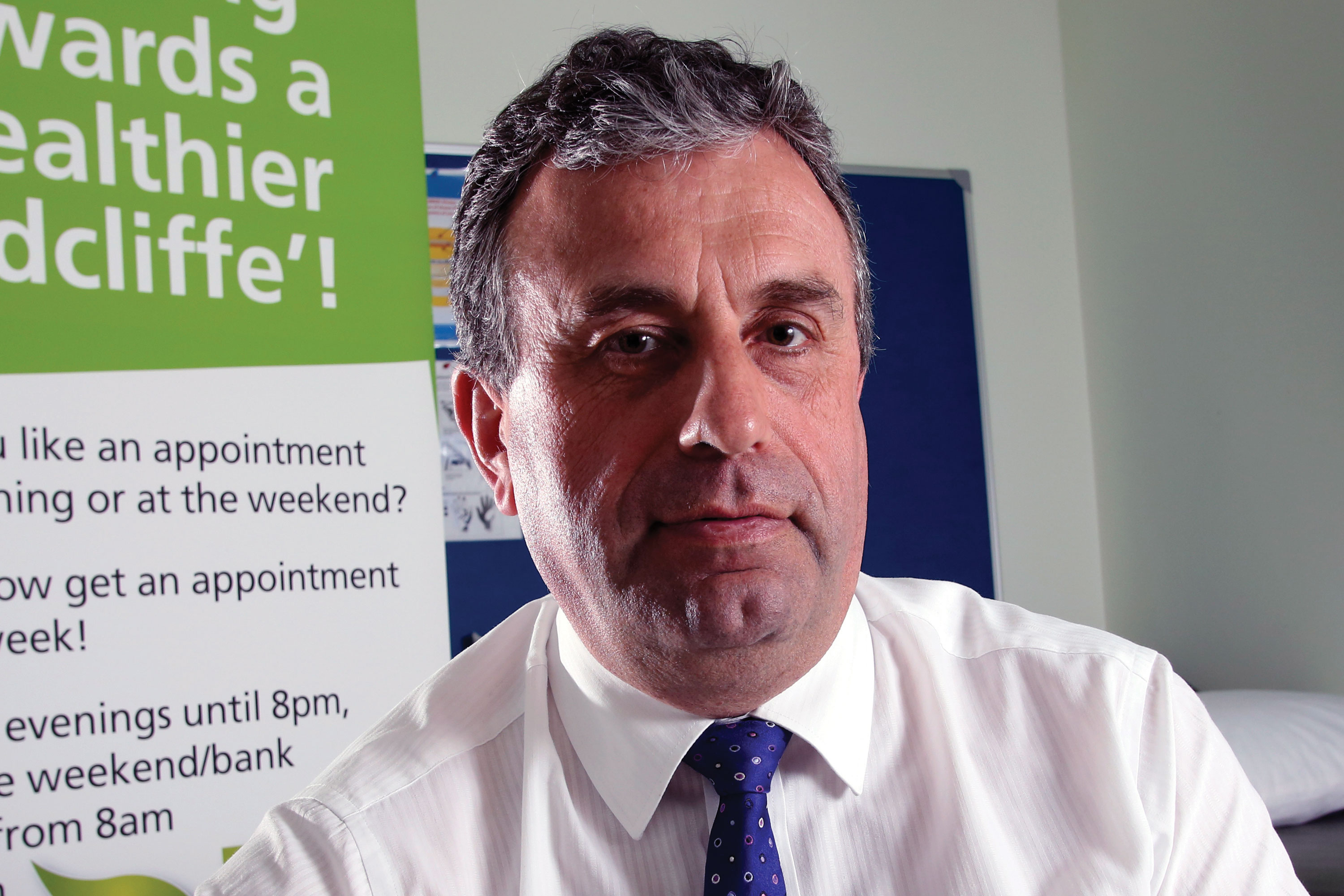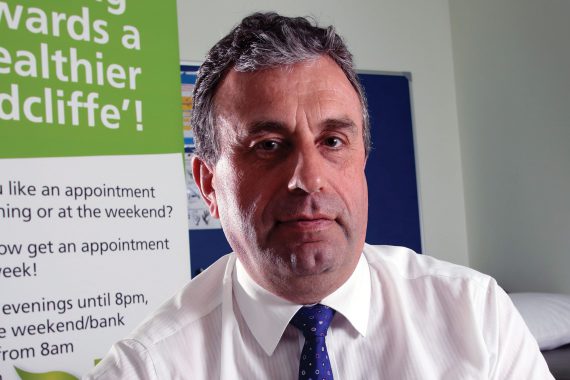
Without a doubt, the Government’s flagship policy to offer seven-day NHS services has become a contentious political issue.
On one hand, we have Health Secretary Jeremy Hunt pushing for seven-day services to meet the rising expectations of patients and to improve outcomes outside core hours. And on the other, we have many groups voicing concerns about whether seven day services are achievable within existing resources, particularly in general practice where services are already overstretched.
It’s a challenge not to get drawn in by either side of the debate, each with their own legitimate arguments. But politics aside, if we honestly ask the question ‘are moves to offer busy working patients and parents more convenient appointments in the evenings and at weekends a good thing?’ in Bury, our response has been a resounding yes.
That’s not to say that we deny the enormous challenges facing general practice, we don’t. But we also can’t deny the fact that working patients tell us time and again that they’re struggling to get to see us.
So what do these patients do? Yes many soldier on, but many will end up in other NHS services like A&E, often inappropriately, especially when we acknowledge the role of deprivation – rates of A&E attendance and non-elective admissions, are twice the level in the most deprived quintile versus the least. And I know I don’t need to spell out the pressures facing A&E departments across the country, particularly at this time of the year.
Evidence tells us that access in primary care can change patient behaviour and reduce walk-in centre, out of hours and A&E attendance. So in Bury, we decided to act.
A successful project was already offering extended access in the Radcliffe area and had resulted in a reduction in attendances of 25% at A&E, 14% at walk-in centres and 38% at the out of hours service.
Ultimately, we have been able to offer extended access to all 195,000 patients registered all 33 Bury GP practices
Based on the successes of this project, GPs in Bury (under the banner of Bury GP Federation) applied for funding from the Prime Minister’s GP Access Fund so that we could properly resource the extension of this successful service.
Our vision aimed to provide all Bury patients with more choice, convenience and flexibility when accessing local GP services and to reduce variations in quality of care and increase patient satisfaction, reduce unnecessary A&E attendance and ultimately develop a service that was sustainable.
The Radcliffe centre was already successfully providing GP services from 6.30pm to 8pm weekdays and 8am to 6pm on weekends for patients registered at six local practices. Using the learning from the pilot, we expanded this ‘hub and spoke’ model and added four more ‘hubs’ in accessible locations across the borough.
All this was possible because we were able to sufficiently invest in resourcing the development of robust systems, structures and processes, all of which could not have been done within existing capacity as an adjunct to existing people’s roles and within existing budgets.
Key to the success of our extended hours’ project in Bury has been the ability to make all patient records accessible from each of the five hubs, something we know other areas have struggled with. We’ve been in the fortunate position of all Bury practices being on the same clinical system which has helped, but this alone would not have been sufficient. Positive collaboration made possible by working together in a federated model has been crucial to our success.
Ultimately, we have been able to offer extended access to all 195,000 patients registered all 33 Bury GP practices. But we haven’t stopped there. As well as the additional 1,400 GP appointments being offered each week, each of our practices has signed up to offer phone consultations as a routine alternative to face-to-face appointments.
Many have quoted a lack of demand for Sunday appointments (as reported in the Wave 1 Evaluation Report) as clear evidence of a flaw in the move to offer seven day services. That hasn’t been the case in Bury where Sunday demand (albeit lower than weekday evenings and Saturdays) has been steady and we have simply adjusted our resourcing levels to match demand. Our experience also tells us that Sunday appointments can alleviate pressures on practices that arise from Monday morning demand.
Other criticisms centre on the resourcing of extended access, but I believe that if every GP in our borough volunteered to do one extended access shift a month, we could sustainably resource our extended access service.
I believe that seven-day services (if adequately funded) will maximise primary care’s potential to offer a responsive population-based locality model which will enable true community engagement to deliver more person centred care. That said, discussions with commissioners are ongoing regarding the future model of extended access.
The contention surrounding seven-day services is unlikely to abate any time soon with each side vociferously arguing their case. But for patients it’s a no brainer, they need flexible seven-day services that fit around their lives. And for us, our focus needs to be on delivering the right care, in the right place, at the right time to achieve the best outcomes and the value for money.
Dr Peter Thomas is organisational medical director for Bury GP Federation and a GP in the town
















